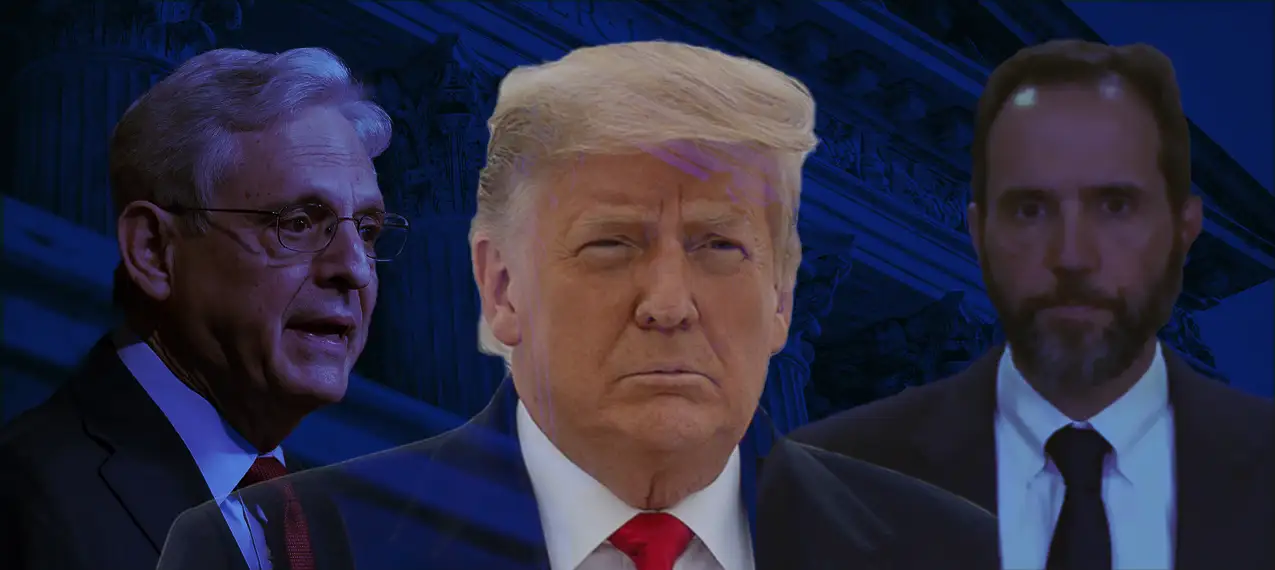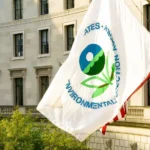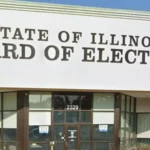
This April, the U.S. Supreme Court will take up the question as to whether former President Trump is immune from criminal prosecution for actions taken at the end of his presidency. It remains to be seen whether the Supreme Court will consider another important issue raised by amicus curiae (friends of the court) but not considered by the Circuit Court, whether Attorney General Merrick Garland’s appointment of Special Counsel Jack Smith is even constitutional. We will limit our comments here to the immunity issue.
Background
The Attorney General appointed Jack Smith as Special Counsel for the Department of Justice in November of 2022 to investigate former President Donald Trump’s actions between election day in 2020 and the events of January 6, 2021. The Special Counsel issued a broad Indictment of the former President and his co-conspirators for working to challenge the results of the 2020 election. In response, the former President moved to dismiss the Indictment, raising the following defenses: “(1) presidential immunity; (2) constitutional provisions, including the Impeachment Judgment Clause and principles stemming from the Double Jeopardy Clause; (3) statutory grounds; and (4) allegations of selective and vindictive prosecution.” United States v. Trump, 2024 U.S. App. LEXIS 2714, *9 (D.C. Cir. 2024). The D.C. District Court denied these motions, President Trump appealed the ruling on points one and two, and the Circuit Court heard oral arguments in early January 2024.
Circuit Court Analysis
The Circuit Court issued its decision on February 6, 2024, and the Supreme Court agreed to hear the case shortly thereafter. In its opinion, the three-judge Circuit Court panel discussed at length whether it has jurisdiction to hear the appeal, ultimately concluding the jurisdiction was appropriate. It then considered whether Trump’s claims of immunity held water, noting that this case was novel, as it would “extend the framework for Presidential civil immunity to criminal cases and decide for the first time that a former President is categorically immune from federal criminal prosecution for any act conceivably within the outer perimeter of his executive responsibility.” United States v. Trump, 2024 U.S. App. LEXIS at *24. Specific issues addressed were whether Article III courts have power to review presidential acts; that policy considerations necessitate immunity; and that the Impeachment Judgment Clause requires that the President must be impeached and convicted by Congress before he can be prosecuted.
Turning its attention to the legal analysis, the Circuit Court first examined the Separation of Powers issue. Trump argued that Marbury v. Madison holds that courts cannot review the official acts of the President. The Circuit Court countered, stating that Marbury only bars review of lawful discretionary acts, and not all official actions taken as president. It cited court precedent including Mississippi v. Johnson, Little v. Barreme, and Youngstown Sheet & Tube Co. v. Sawyer where courts had reviewed presidential actions. The Circuit Court also noted that “[l]egislators and judges are absolutely immune from civil suits for any official conduct…[n]evertheless, legislators and judges can be criminally prosecuted under generally applicable laws for their official acts.” Id. at *25
The Circuit Court then rebuffed claims that policy considerations demand immunity. Trump argued that presidential actions will be chilled if Presidents believe they may be prosecuted for anything they do while in office. However, the Circuit Court concluded that the public has a greater interest in “fair…judicial proceedings.” Id. at *40 (quoting Trump v. Vance, 140 S. Ct. 2412, 2424 (2020)). Prior Presidents believed they could be subject to impeachment, for example, and yet were not significantly risk averse in their decision making. The Circuit Court also noted that prior Presidents may have believed they were not immune from criminal prosecution, citing Gerald Ford’s decision to pardon Richard Nixon. The Circuit Court also rejected the additional claim that Presidents may be subject to politically motivated prosecution after leaving office, stating that this “risk that former Presidents will be unduly harassed by meritless federal criminal prosecutions appears slight.” Id. at *46. Finally, the Circuit Court concluded that because the indictment charges at hand involved an alleged attempt to prevent the transition of presidential power, they raise “a profound Article II interest in the enforcement of federal criminal laws,” and thus a former President should not be immune to prosecution for these actions. Id. at *46.
The Circuit Court then addressed arguments by Trump that Article 1, Section 3 of the U.S. Constitution (the Impeachment Judgment Clause) provides the avenue for prosecution of the president for criminal actions. In short, Trump claimed Congress must impeach and convict him before he (or any president) could be subject to prosecution. This argument relies on the text and structure of the section, specifically that the use of the word “convicted” implies that presidents not convicted in an impeachment are not subject to prosecution. The Circuit Court noted that “[o]ther courts have rejected this ‘tortured’ interpretation of the Impeachment Judgment Clause.” Id. at *56. It further stated that this argument does not stand when considering that “[t]he framers knew how to explicitly grant criminal immunity,” something they did in other sections of the Constitution. Id. at *57. The Circuit Court also discussed the textual evidence that suggests he misread the clause, such as the use of the word “nevertheless,” which suggests “liability will not be limited.” Id. at *58. They also dismissed the limited historical basis for Trump’s argument, namely a single sentence from the Federalist Papers, which the Circuit Court concluded was misread. For example, the Circuit Court notes that in subsequent passages of the Federalist Papers, Alexander Hamilton “stresses that the President must be unlike ‘the king of Great Britian’ who was ‘sacred and inviolable.’” Id. at *61. Finally, the Circuit Court concluded that this reading of the Impeachment Judgment Clause would be unworkable, as it applies to the Vice President and civil Officers of the United States. Such an interpretation would extend immunity to all these people, putting the executive branch above the law.
Lastly, the Circuit Court rejected Trump’s argument that double jeopardy principles prevent him from being tried for the crimes he was indicted for by the Special Counsel. Specifically, the former President argues that because Congress had impeached him but not voted to convict him for his conduct following the election, he cannot now be prosecuted for that same conduct. Applying the Blockburger test, which is used to determine whether two charges are similar enough to qualify as a violation of double jeopardy principles, the Circuit Court stated “(1) An impeachment does not result in criminal punishments; and (2) the Indictment does not charge the same offense as the single count in the Impeachment Resolution.” Id. at *66. If there are elements in each that do not exist in the other, the charges are not the same. The court concluded the pending Indictment is not the same as the impeachment charges, for purposes of determining whether this was a violation of double jeopardy principles.
Questions raised by Amici
In their conclusion, the Circuit Court included a footnote discussing an amicus brief filed by former Attorney General Edwin Meese III, that argued the Special Counsel’s appointment is unlawful, and therefore he has no authority to bring an Indictment against the former President. Former Attorney General Meese, who is a member of Landmark Legal Foundation’s board of directors, argued there is a lack of statutory authority for the creation of Jack Smith’s position, as Congress is the only entity with the authority to create such an Office. The President must have appointed, and the Senate confirmed, the Special Prosecutor. The Circuit Court declined to comment on this argument, stating that it lacked jurisdiction over the issue, as the issue was not presented at the district court. It remains to be seen whether the Supreme Court will consider this issue during oral arguments, scheduled for April 25, 2024.
SUPPORT LANDMARK LEGAL FOUNDATION
We are truly facing existential threats to our individual rights and liberties, the Constitution, and our national character. If unchallenged, this assault on our very way of life will ruin our great nation. With your financial and moral support, Landmark is not going to let that happen without a fight. Will you join us?
JOIN OUR MAILING LIST
Never miss an update from Landmark Legal Foundation as we continue the fight to preserve America’s principles and defend the Constitution from the radical left.
Landmark will NEVER share your contact information and we will not flood your inbox.





